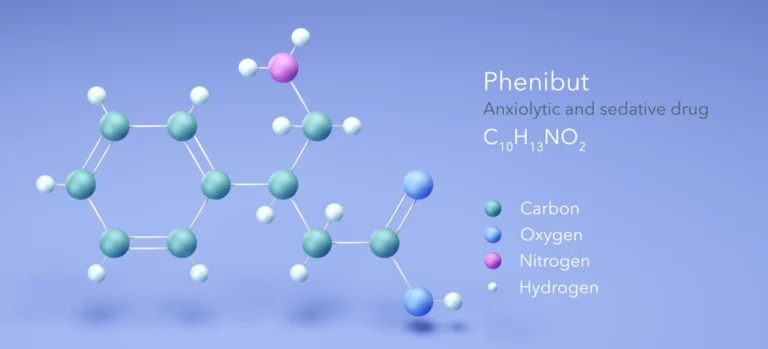For individuals seeking recovery, understanding the role of trauma in addiction is crucial. Trauma-Informed Addiction Treatment in Knoxville, TN, focuses on addressing the underlying trauma that often coexists with substance use disorders. By integrating dual diagnosis treatment, these programs provide comprehensive care to aid both mental health and addiction recovery.

Key Aspects of Trauma-Informed Addiction Treatment
The journey to recovery is unique for everyone, but many individuals with addiction issues also struggle with unresolved trauma, which can complicate the healing process. Trauma-informed addiction treatment is a compassionate and evidence-based approach that recognizes the profound impact of traumatic experiences on a person’s mental, emotional, and physical well-being, as well as their potential role in fueling substance abuse.
Unlike traditional methods, trauma-informed addiction treatment prioritizes safety, trust, and empowerment, helping individuals address the root causes of their addiction rather than just the symptoms.
By integrating trauma-informed addiction treatment into recovery programs, clinicians and caregivers can create a supportive environment where clients feel understood and validated. This approach acknowledges that trauma and addiction are often deeply intertwined, and healing requires a holistic strategy that addresses both. Whether through therapy, support groups, or medical care, trauma-informed addiction treatment ensures that individuals receive care tailored to their unique experiences, reducing the risk of retraumatization and fostering long-term recovery.
For those seeking help, finding a program that specializes in trauma-informed addiction treatment can make a significant difference in their recovery journey. It provides the tools and understanding needed to break free from the cycle of addiction while healing from past wounds in a safe and nurturing space.
Core Principles of Trauma-Informed Care
Safety and Trustworthiness
Creating an environment that makes individuals feel safe, respected, and understood is a fundamental priority in trauma-informed addiction treatment. Trust is carefully built through transparency, clear communication, and consistency in care, fostering a deep sense of security for patients who may have experienced betrayal, neglect, or abuse in the past. In trauma-informed addiction treatment, every interaction—whether with clinicians, counselors, or support staff—is designed to reinforce stability and predictability, helping individuals feel in control of their recovery journey.
A key aspect of trauma-informed addiction treatment is recognizing that many people struggling with addiction have histories of trauma that shape their behaviors, coping mechanisms, and even their ability to trust caregivers. By prioritizing emotional and physical safety, trauma-informed addiction treatment ensures that therapy spaces, group sessions, and medical care are delivered in ways that minimize distress and avoid retraumatization. For example, staff are trained to use non-confrontational language, respect personal boundaries, and provide choices whenever possible—empowering patients rather than dictating their care.
Additionally, trauma-informed addiction treatment emphasizes cultural sensitivity and individualized care, acknowledging that trauma and addiction manifest differently across diverse populations. Whether through one-on-one counseling, peer support groups, or holistic therapies like mindfulness and somatic healing, this approach fosters resilience and self-compassion. Ultimately, trauma-informed addiction treatment doesn’t just treat the symptoms of addiction—it helps individuals rebuild their lives on a foundation of safety, dignity, and trust.
Collaboration and Empowerment
In trauma-informed addiction treatment, patients are not just passive recipients of care—they are encouraged to actively participate in their treatment process, making informed decisions that directly affect their recovery journey. This emphasis on collaboration and autonomy is a cornerstone of trauma-informed addiction treatment, as it helps restore a sense of control that may have been eroded by trauma and addiction. By involving individuals in goal-setting, therapy options, and personal care plans, trauma-informed addiction treatment fosters empowerment, which plays a crucial role in rebuilding confidence, self-worth, and resilience.
Unlike traditional approaches that may impose rigid treatment structures, trauma-informed addiction treatment recognizes that each person’s path to healing is unique. Patients are supported in exploring what works best for them, whether through evidence-based therapies like EMDR or CBT, holistic modalities such as art or equine therapy, or peer-led support groups. This personalized, patient-centered approach is a defining feature of trauma-informed addiction treatment, ensuring that care aligns with an individual’s needs, preferences, and comfort levels.
Moreover, trauma-informed addiction treatment reinforces empowerment by educating patients about the connections between trauma and addiction, helping them understand their own triggers and coping mechanisms. This knowledge equips them with the tools to advocate for themselves both during and after treatment. By prioritizing choice, voice, and self-determination, trauma-informed addiction treatment not only facilitates recovery but also cultivates long-term emotional strength and relapse prevention skills. Ultimately, this approach transforms the healing process into an empowering journey of self-discovery and growth.
Peer Support
In trauma-informed addiction treatment, including peer support is a vital component that helps foster deep healing and lasting empowerment. By connecting individuals with others who have walked similar paths, this approach leverages the profound strength of shared experiences and mutual understanding. Unlike traditional clinical interactions, peer support creates a unique bond—one built on authenticity, lived experience, and the reassurance that recovery is possible. This communal approach can significantly enhance the recovery experience by reducing feelings of isolation, shame, and stigma that often accompany trauma and addiction.
Within trauma-informed addiction treatment, peer support specialists—many of whom are in long-term recovery themselves—serve as living proof that transformation is attainable. They provide not just practical guidance, but also hope, empathy, and relatable insights that clinicians without personal addiction experience may not fully convey. Group settings, whether in structured therapy sessions or informal recovery circles, become safe spaces where individuals feel seen and validated. This aligns perfectly with the core principles of trauma-informed addiction treatment, which emphasizes safety, trust, and collaboration.
Research shows that peer support improves engagement in treatment, increases accountability, and strengthens coping skills—key factors in sustaining recovery. In trauma-informed addiction treatment, these groups often incorporate trauma-sensitive practices, ensuring discussions are facilitated in ways that avoid retraumatization while encouraging vulnerability at each person’s comfort level. Whether through 12-step meetings, SMART Recovery, or alternative peer-led programs, this model reinforces that no one has to heal alone.
By integrating peer support into trauma-informed addiction treatment, programs acknowledge that connection is as crucial to recovery as clinical interventions. The shared wisdom within these groups helps individuals reframe their narratives, develop healthier relationships, and build a supportive network for lifelong recovery. This collective healing approach doesn’t just treat addiction—it rebuilds community, belonging, and purpose, which are often lost in the cycle of trauma and substance abuse.

Integrating Trauma-Informed and Dual Diagnosis Treatment
Dual diagnosis treatment addresses not only substance use disorders but also co-occurring mental health issues such as anxiety, depression, or PTSD that often accompany trauma. This integrated approach ensures that patients receive holistic and comprehensive care tailored to their needs.
Expectations from Trauma-Informed Addiction Treatment
Understanding what to expect from trauma-informed addiction treatment can help individuals feel more prepared and comfortable beginning their recovery process.
Comprehensive Assessment and Personalized Planning
Initial Evaluation
Treatment often begins with a thorough assessment to understand the individual’s trauma background, substance use history, and mental health status. This evaluation is critical for developing an effective treatment plan.
Customization
Based on the evaluation, a personalized treatment plan is developed, incorporating therapies that address both trauma and addiction. This ensures that care is specifically tailored to the individual’s unique needs.
Therapeutic Approaches
Cognitive Behavioral Therapy
CBT helps individuals identify and change negative thought patterns and behaviors related to trauma and addiction. It is a foundational tool in addressing harmful coping mechanisms.
Eye Movement Desensitization and Reprocessing
EMDR is a therapy specifically designed to alleviate distress associated with traumatic memories. It can be incredibly effective in reducing the impact of trauma on daily life.

Mindfulness and Stress Reduction
Techniques such as meditation and yoga are often used to help patients manage stress and remain present. These practices support mental clarity and emotional stability.
Holistic and Supportive Care
Family Involvement
Encouraging family participation can rebuild trust and strengthen the support network essential for recovery. Family therapy sessions can help mend relationships and foster understanding.
Aftercare Planning
Preparing for life after treatment is crucial. The focus is on continued therapy, support groups, and relapse prevention strategies to maintain recovery momentum. Explore our Aftercare Support Services.
FAQs about Trauma-Informed Addiction Treatment
What is trauma-informed addiction treatment?
Trauma-informed addiction treatment is an approach that acknowledges the role of trauma in substance abuse disorders and emphasizes creating safe, empowering environments to promote recovery. It often integrates dual diagnosis treatment to address co-occurring mental health issues.
How does dual diagnosis treatment enhance recovery?
Dual diagnosis treatment addresses both mental health disorders and addiction simultaneously, offering a more comprehensive approach to recovery. By treating both conditions together, individuals have a higher chance of achieving long-term sobriety.
What are the benefits of a trauma-informed approach?
This approach helps create a supportive and understanding environment, facilitating healing by respecting individual experiences and promoting patient empowerment and collaboration. It also improves therapeutic outcomes by addressing root causes of addiction.

Embrace a Comprehensive Path to Recovery
Trauma-informed addiction treatment in Knoxville, combined with dual diagnosis strategies, offers a nuanced approach to recovery, considering the complexity of trauma and mental health in addiction. If you or a loved one are seeking comprehensive care, Knoxville Recovery Center is here to support you on your journey. For personalized consultations, contact us today or call us to begin your journey on the road to recovery.








